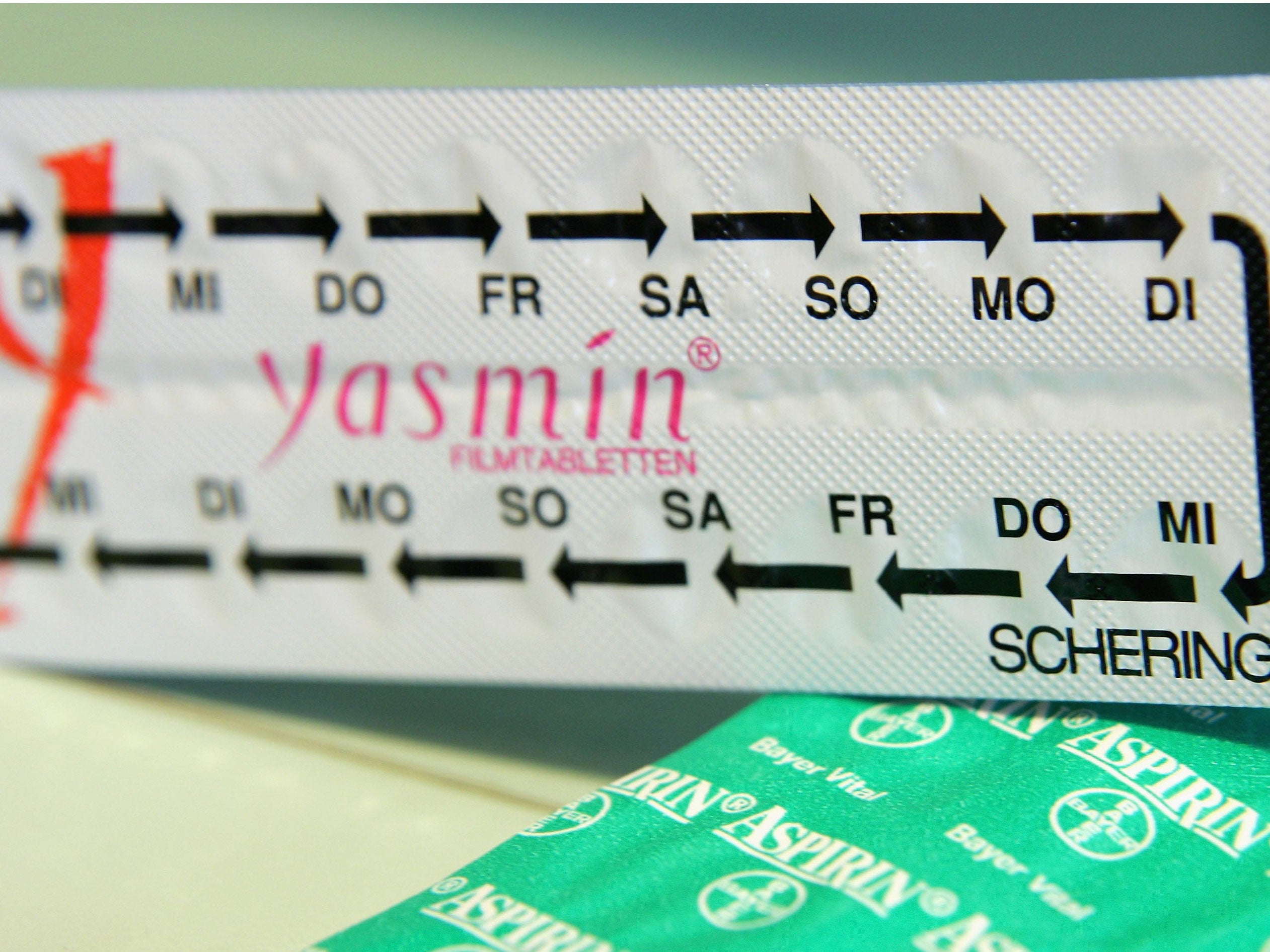GPs warn a million women at risk of blood clots from popular birth control pills
Third-generation contraceptive pills double women's chances of developing fatal blood clots

A million women who take Britain’s most popular contraceptive pills are being warned that they risk potentially life-threatening blood clots.
GPs nationwide have been ordered to warn patients that they are almost twice as likely to develop blood clots if they take some of the most widely used birth-control tablets, including Yasmin, Femodene and Marvelon, compared with older products.
According to the Mail on Sunday, scientists found that so-called third-generation contraceptives caused 14 deaths a year in France.
Britain's drug watchdog, the Medicines and Healthcare Products Regulatory Agency (MHRA) has written to the country’s 60,000 GPs, ordering them to pay "careful consideration" to individuals' risk factors before prescribing them the combined hormonal contraceptives.
A history of deep vein thrombosis (DVT) or very high blood pressure are among the conditions that would prevent a doctor recommending the drugs.
The move follows a report by the European Medicines Agency, which found that the synthetic hormones used in these birth-control pills present a higher risk of causing blood clots than previously thought. The report also found that the packaging of the pills should be updated to ensure that women are made aware of these risks.
The MHRA wrote a letter to doctors on January 22, which stated that "there is no need for anyone who has been using a combined hormonal contraceptive without any problems to stop taking it on the basis of this review".
It added: "Combined hormonal contraceptives are highly effective in preventing unwanted pregnancy. They offer substantial benefits and these far outweigh the small risk of serious side effects."
These newer pills are prescribed about two million times a year. They are popular because they are less likely than their predecessors to cause side-effects such as weight gain, headaches, breast tenderness and hair growth.
Third generation pills were launched in the 1980s and official concerns were first raised about increased DVT risks in 1995.
The annual risk of a woman of childbearing age having a serious blood clot is 1 in 5,000 if she is not on a combined contraceptive pill, the MHRA letter said.
The risk increases to about 1 in 1,700 a year if she is taking one of the older forms of combined pill, and taking third generation pills means the risk is as high as 1 in 800.
Dr Sarah Branch, deputy director of the MHRA's vigilance and risk management of medicines division, said: "Women should continue to take their contraceptive pill. These are very safe, highly effective medicines for preventing unintended pregnancy and the benefits associated with their use far outweigh the risk of blood clots in veins or arteries.
"No important new evidence has emerged - this review simply confirms what we already know, that the risk of blood clots with all combined hormonal contraceptives is small.
"If women have questions, they should discuss them with their GP or contraceptive provider at their next routine appointment but should keep taking their contraceptive until they have done so."
Subscribe to Independent Premium to bookmark this article
Want to bookmark your favourite articles and stories to read or reference later? Start your Independent Premium subscription today.

Join our commenting forum
Join thought-provoking conversations, follow other Independent readers and see their replies